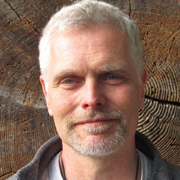 Brad Warren
Brad Warren
President
National Fisheries Conservation Center
“For a quarter century NFCC has held a determined line: We aren’t here to fight over the fish. We’re here to make sure there are fish. That priority has guided our work from the start. That’s why our focus has evolved. Our early concentration on fisheries management turned toward deeper water as we learned that all fisheries face an underlying challenge: ensuring the ocean itself can still make dinner for billions of people. Today the greatest single threat to healthy oceans and fisheries is carbon pollution and its litany of consequences. Few challenges are more galvanizing, and few are more daunting. I am grateful and amazed at the talent and generosity that our board, staff, volunteers, donors, and allies and friends continue to bring to this effort. Thank you all.”
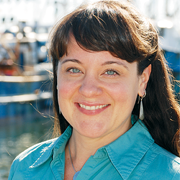 Jessica Hathaway
Jessica Hathaway
Senior Consultant
Ocean Strategies Inc.
Jessica Hathaway is a senior consultant for Ocean Strategies, a public affairs firm specializing in fisheries, seafood and marine resources. Before joining Ocean Strategies, she was editor of National Fisherman magazine for more than a decade. She also serves on the Alaska Seafood Marketing Institute’s Communications Committee.
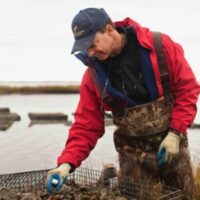 Daniel Grosse
Daniel Grosse
Co-Founder
TerrAqua Environmental Science and Policy, LLC
“I first encountered shellfish farming in the 1990s as community development, to help traditional commercial harvesters develop sustainable, small-scale oyster farming. It was a hard sell. Most wild harvesters considered aquaculture a threat to their traditional lifestyle. Although that lifestyle was long under threat from overharvesting, habitat destruction and oyster diseases, it took considerable effort and education to develop the trust of even a few individuals in each community. This approach is, I believe, essentially the NFCC’s.
A few years later, in 2006, I began farming oysters. It has been gratifying to grow something that’s not just environmentally neutral, but benefits the environment in so many ways—also consistent with the NFCC’s goals.
At the time, I had wanted to grow clams as well, but the sediment was too poor to support them. By 2021, the oysters had sufficiently improved conditions that I started—finally—to farm clams.
As a commercial oyster farmer, I have worked with many stakeholders. Though my association with the East Coast Shellfish Growers Association, I have worked with legislators to promote the health of the environment and of the industry. Oysters have provided insights to my students on links between water quality, estuarine resources and human health. And the NFCC has provided mutually beneficial research opportunities for those students.“
 Evan Nelson/Buntrock
Evan Nelson/Buntrock
Evan’s interest in Global Ocean Health started with Brad, who through his reverence for nature, stirred Evan’s memories of outdoor adventures with his father. Working with Amazon means less adventures today, but it has given Evan a breadth of analytical experience that may be useful to an environmental organization. Since 2015, Evan has used skills learned during his economics PhD to analyze program impacts or forecast for the retail website, physical stores, and the lending program. He now leads a team of eight economists dedicated to maximizing the productivity of thousands of AWS sales representatives. When not at work, he can be found walking his dog, lifting weights, reading, working on an epic fantasy novel, or learning to cook from his talented wife.
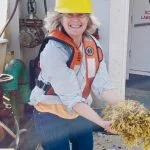 Alyson Myers
Alyson Myers
Human impacts on Nature prompt rethinking–to restore natural systems, on which we depend, while creating economic goods. Our largest ecosystem, the ocean, is the best example; it provides food, absorbs CO2, and importantly, can provide climate solutions. My work focuses on optimizing aquaculture systems to assist ocean health, including: macroalgae that convert CO2 to harvestable form, and shellfish that clean water. Collaborations between NFCC, tribes, entrepreneurs, and ocean workers can scale solutions. Answers are all around if we pay attention. NFCC finds ways to lift solutions to the surface, prioritizing Nature and humankind in symbiotic relationship. Observation, trial and error, and working together will get us there.
 Fraser Rieche
Fraser Rieche
“Although hope is not a strategy it is the dreams and then the actions it inspires that makes things better.”
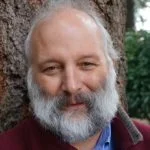 Kevin Scribner
Kevin Scribner
“Global Ocean Health has the appetite and capacity to be bold AND wise. We are confident but not brash; we sense urgency, but won’t be rash; we aspire to be accurate, but not over-analyze; and we will humbly learn along the way—all while infused with the attitude that challenges are opportunities in disguise.”
 Eric Scollard
Eric Scollard
Carbon Robotics
“Having spent decades helping build technology companies that invented solutions to unlock productivity of human capital and new business models, I have realized that we need to apply that same energy and focus to tackling the global challenge of ocean health. Global Ocean Health is leading the way with practical approaches to bring groups that rely on our oceans to the table in order to make lasting progress. Technologies that reduce carbon emissions and, more significantly, remove carbon from the oceans are necessary to provide leverage to the actions and intentions of stakeholders committed to de-carbonization efforts in the oceans and on land.”
 Brenna Davis
Brenna Davis
The Organically Grown Company
Brenna first collaborated with Global Ocean Health on climate policy advocacy and later on PCC Community Market’s Chinook Salmon Standard. An environmental scientist and the CEO of Organically Grown Company, Brenna has consistently been inspired by Global Ocean Health’s ability to integrate the realms of policy, science and culture into meaningful and practical ways to protect our oceans and the people who depend on them. She’s honored to serve on the board of directors with the vision of healing our oceans so that current and future generations can thrive.
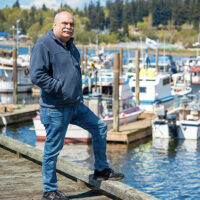 Daryl Williams
Daryl Williams
Tulalip Tribes
“I have worked for over 4 decades on fisheries habitat and other environmental issues pertaining to Puget Sound and its tributaries. With the effects of climate change, we need to take a more global view and address how to reduce carbon emissions and to remove carbon from our oceans. Global Ocean Health is a leader in addressing these issues.”
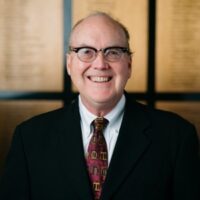 Wil Burns
Wil Burns
Northwestern University/American University
Dr. Wil Burns is currently a Visiting Professor in the Environmental Policy and Culture Program at Northwestern University. He previously served as Founding Co-Director of the Institute for Responsible Carbon Removal at American University’s School of International Service in Washington, DC. He has also taught at John Hopkins University, where he served as the Director of the Energy Policy & Climate Program, University of Chicago, Stanford University, and the University of California-Berkeley.
Prior to becoming an academic, he served as Assistant Secretary of State for Public Affairs for the State of Wisconsin and worked in the non-governmental sector for twenty years, including as Executive Director of the Pacific Center for International Studies, a think-tank that focused on implementation of international wildlife treaty regimes, including the Convention on Biological Diversity and International Convention for the Regulation of Whaling.
He is the former President of the Association for Environmental Studies & Sciences, and former Co-Chair of the International Environmental Law interest group of the American Society of International Law and Chair of the International Wildlife Law Interest group of the Society. He is also a former Senior Research Fellow for the Centre for International Governance Innovation (CIGI), and Co-Chair of the International Environmental Law Committee of the American Branch of the International Law Association.
He also served as founder and Editor-in-Chief of the Journal of International Wildlife Law & Policy and is the founding Editor-in-Chief of Case Studies in the Environment. He has published over 80 articles and chapters in law, science, and policy journals and books, and has co-edited four books. He holds a Ph.D. in International Environmental Law from the University of Wales-Cardiff School of Law. His current areas of research focus are: carbon removal & climate geoengineering, climate loss and damage, and the effectiveness of the European Union’s Emissions Trading System.
